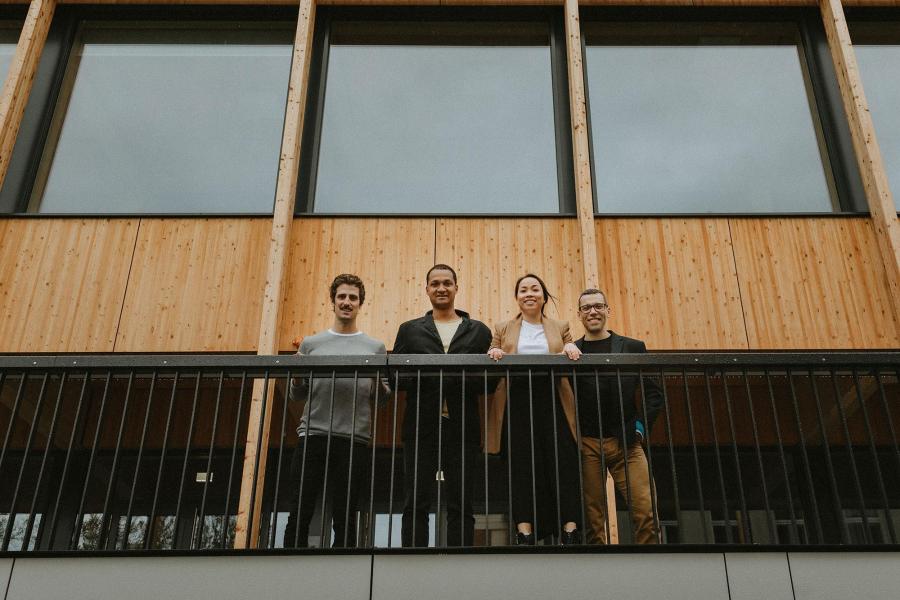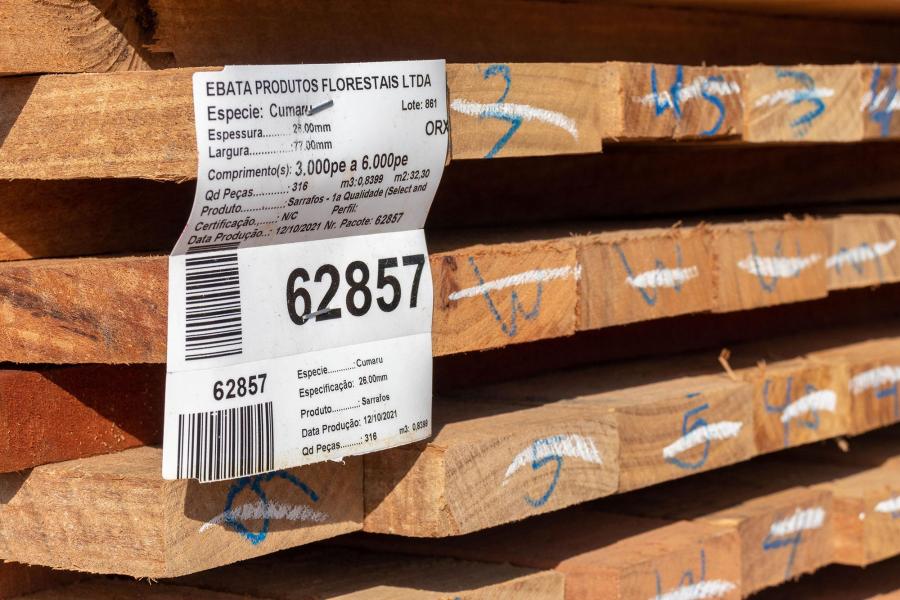Beetle ForTech monitors global timber sourcing to ensure sustainable forest management and prevent illegal wood trade for our furniture
If the chair you’re sitting on while you read this is made of wood, there’s a good chance it’s from an illegal source.
Globally, according to Interpol, as much as one-third of wood furniture—our chairs, tables, doors, beds—is built from timber that has been illicitly harvested. Every year, the world loses 10 million hectares of wood, or an area the size of Iceland, due to unlawful logging. Interpol states that the illegal timber industry is worth almost $152 billion annually, attracting some of the world’s largest crime syndicates.
Uncontrolled logging is responsible for a host of problems, including biodiversity loss, desertification, and greenhouse gas emissions. And the global demand for wood is only increasing.
“Illegal logging is such a big problem, but nobody talks about, no one knows about it. It’s a niche thing, but it affects everyone,” says Matthias Sammer. He is one of the co-founders of Beetle ForTech, an Austrian start-up that aims to ensure sustainable forest management by tracing individual logs throughout the supply chain.
The four founders of Beetle ForTech first met at a 2019 hackathon organised by the Austrian timber industry, where the theme was how to solve the problem of illegal sourcing. The quartet’s various backgrounds covered the global timber trade, sustainable forest management, and wood and fibre technology.

From left to right, Sebastian Vogler, Koimè Kouacou, Anh Nguyen, and Matthias Sammer, the four founders of Beetle ForTech
“We worked on the problem for about 72 hours. We developed a pretty good concept, and that’s how it all started,” says Sammer.
Beetle ForTech, founded in 2021, set itself up as an independent watchdog for global timber sourcing. The unusual name is a nod to the European spruce bark beetle. Each beelte burrows in a unique pattern, just as the start-up marks each tree with a different code to trace it throughout the supply chain.
Using unique tree identifiers for tracing
Several governments have adopted legislation that bans illegally harvested timber. “But there are frameworks,” says Sammer, “and then there’s enforcement. That’s sometimes lacking.”
Until now, he says, nobody has provided the global industry with a holistic solution to guarantee origin, legality, and supply chain transparency for each individual tree.
Beetle ForTech uses an end-to-end, machine-based, timber tracing and certification system to track each log back to the exact spot where the tree once grew. Sammer says they do this in two interconnected ways.

They first give the trees a unique identifier. “We track timber from forest to sawmill, and we mark each individual tree with a QR-type code that presents longitude and latitude, among other data points,, and we track this tag along the supply chain.”
Then the company monitors activities on the ground by using satellite observation technology. With the location data of each tree, Beetle ForTech can check from space to see if one has actually been removed, and monitor the surrounding forest, too.
A typical Beetle ForTech customer could be a big sawmill company that owns forests and hires subcontractors to do its logging. The company would distribute encoding devices for the forest workers to mark the trees they cut, scan the trees’ QR-type codes at the sawmill, and confirm their findings with the satelllite observations.
“We would close the information loop to the exact origin of growth,” says Sammer, “and have all the information we need from forest to sawmill, digitised and ready to go for reporting or analysis purposes.”
Technology is key for seamless supply chain
Beetle ForTech uses blockchain for sharing information among stakeholders along the supply chain. It is developing machine learning and optical technologies for decoding codes at the sawmill and relies on the free Copernicus European Earth Observation Programme for monitoring.
Sammer says the start-up expects to generate four income streams from licencing: due diligence software, tracing, sales monitoring, and data management. Its technology should bring added value for timber operators looking to prove a seamless chain of custody. “We’ve seen in other markets that if you can prove origin reliably, things come at a premium. We expect something similar.”
Jochen Danninger, Lower Austria's economic provincial councillor, took a virtual plant tour of Beetle ForTech in late 2020, and agrees that the industry needs such a tool. “A complete and transparent supply chain is essential for our regional wood producers and traders to be able to document the quality of their products,” he says.
In 2022, Beetle ForTech was a finalist in the European Investment Bank Institute’s Social Innovation Tournament, which supports entrepreneurs making a social, ethical, or environmental impact in their communities. Sammer says the experience was valuable in many ways, from communications strategy to business model to networking.
The company is currently testing components of its tracing solutions in different parts of the world and plans to roll out its timber tracing system in 2024. For the initial phase, Beetle ForTech will focus on the high-value pine and fir trees of Central Europe, with an obtainable market of €650 million. Sammer explains that many of the problems in the global timber industry can be traced back to Central Europe, so it makes sense to start there.
